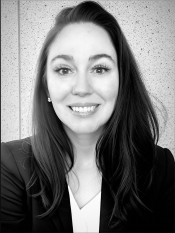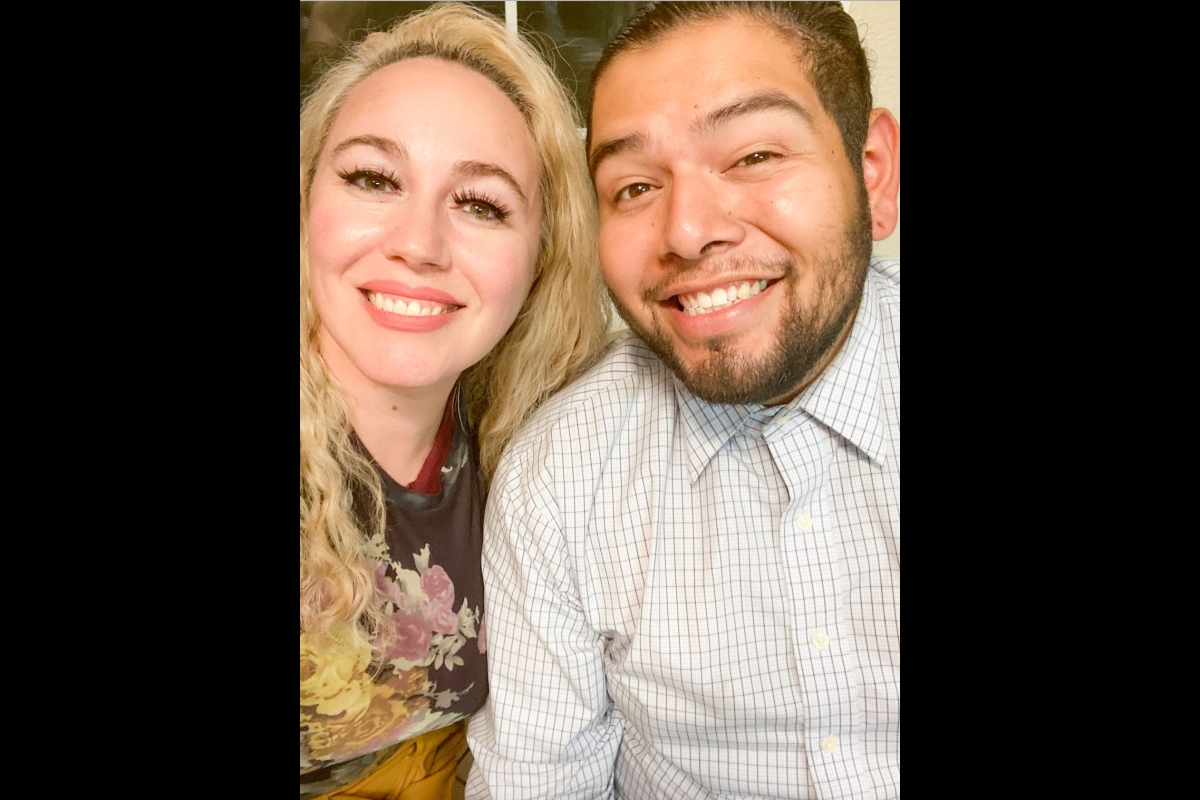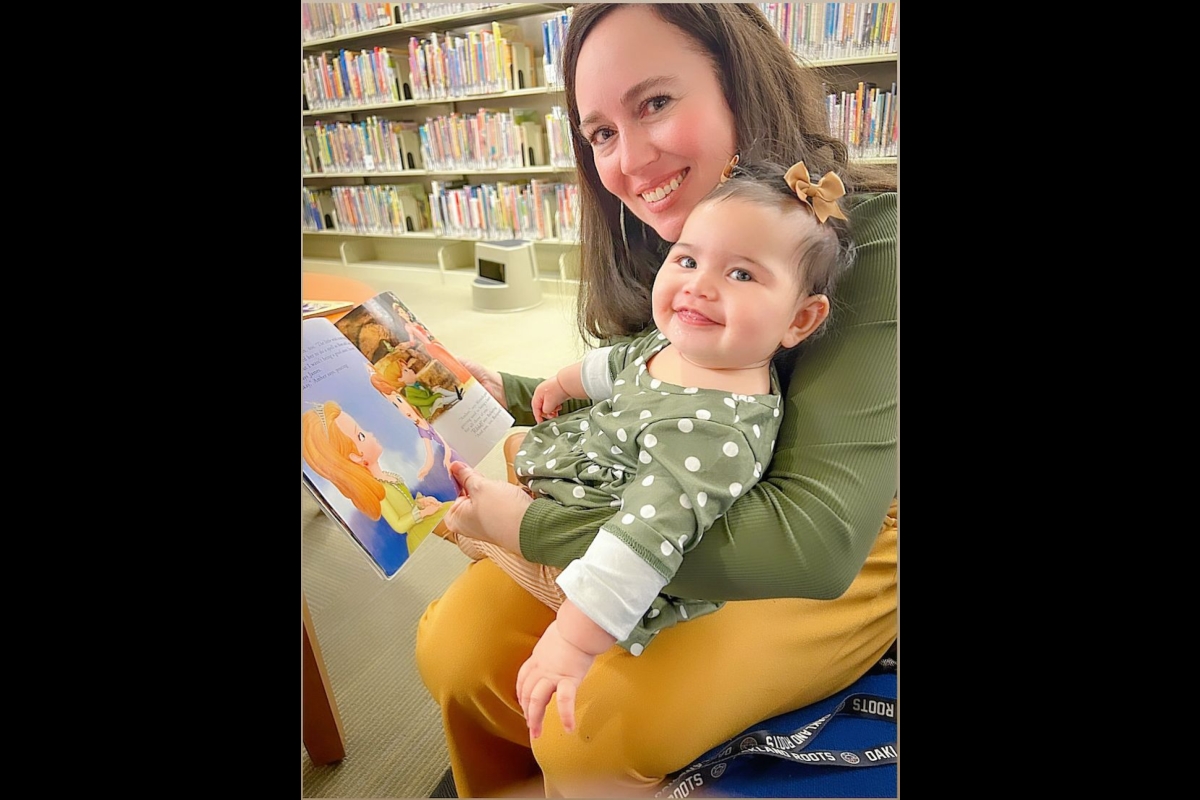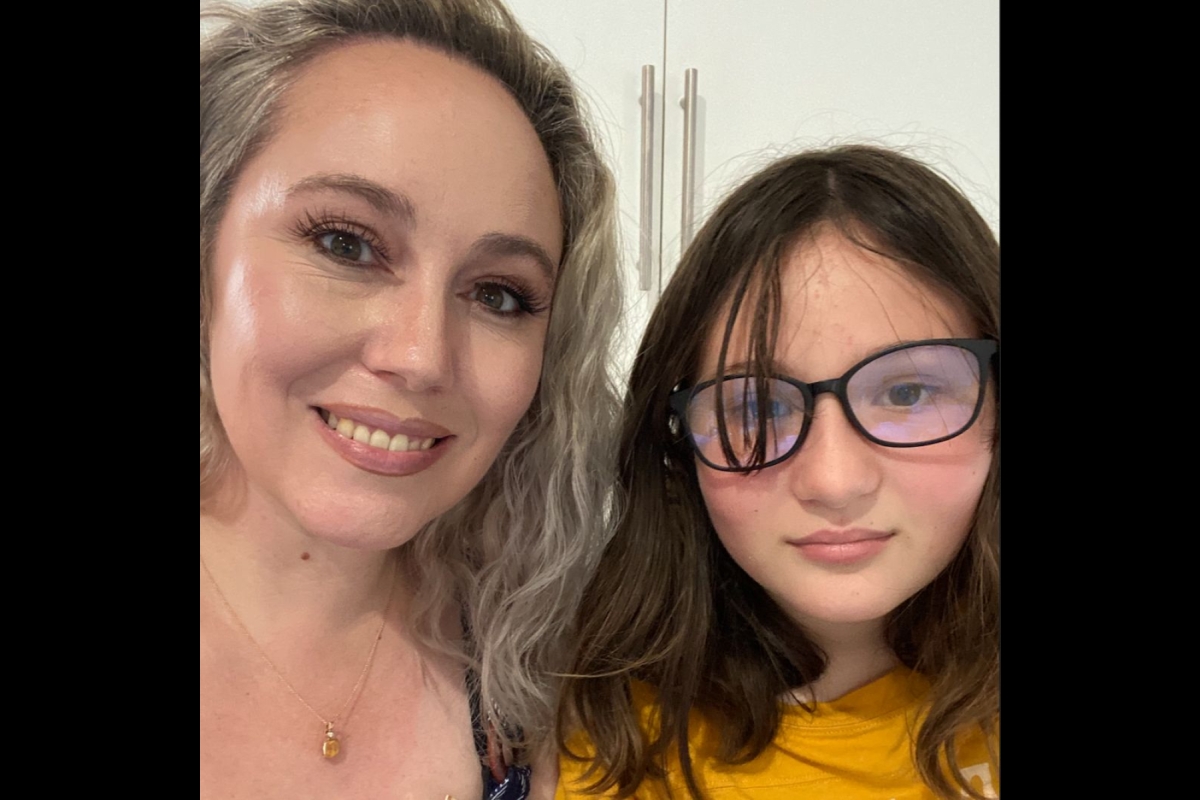Editor’s note: This story is part of a series of profiles of notable spring 2024 graduates.
If you look up the definition of resilience in the dictionary, you might find a picture of Elisha Hernandez.
The new graduate, who is earning her online Bachelor of Science in family and human development with a minor in behavior analysis this spring, has overcome the challenge of a late start on her journey to higher education and the immense grief of losing two children, each during pregnancy.
Those adversities fueled her desire to earn her degree and, in a full-circle moment, one of her classes helped her turn her experiences of loss into hospital reforms.
Hernandez grew up in Napa, California, part of a hardworking blue-collar family with parents who founded their own plumbing business and valued a strong work ethic.
Despite enjoying learning, she couldn’t overcome the trials and bullying she experienced in high school, so she opted to withdraw after passing the proficiency examination during her 10th year. Shortly after, she found herself a mother at just 16 years old.
The following years were dedicated to providing for her young family.
Hernandez worked her way into upper management and director positions despite not holding a degree, all while trying to carve out time to take classes at the local university.
Although her dream of higher education persisted, rising costs and child care challenges made it seem perpetually out of reach.
“In my particular field, I can only go so far with self-taught knowledge,” she said. “I need credentials, and these credentials require advanced college degrees.”
By 2021 Hernandez's family included her husband, Ismael, and four children: two older sons, Willie and Bradley; a younger daughter, Harmony; and another daughter on the way, Suzy. She would ultimately miscarry.
“I had planned to just focus all of my time and energy on being a mommy, and at that time school wasn’t really on my radar,” Hernandez said. “Losing Suzy was a huge blow.”
Then, less than a year later, they lost another daughter, Addy.
“I was in complete shock,” she said. “I said, 'I’m just going to focus on school.' In some ways, school helped distract me from anxiety and fear surrounding my subsequent pregnancy with Olivyah.”
The decision to try school again was further reinforced when Ismael, an Uber Eats driver, discovered the Uber and ASU Education Program. Launched in 2018, the program creates an opportunity for qualifying drivers and couriers with Uber Pro status to be eligible to receive 100% tuition coverage at ASU through ASU Online.
“When Ismael found out that it could be given to an immediate family member, he knew he had to reach gold status,” she said.
Although a new graduate, Hernandez has already put her education into practice.
“My Sociology of Health Care class helped me process a lot of the issues surrounding the loss of my babies,” she said. “I learned a lot about infant mortality rates in various countries and what some countries, like Italy, are doing to protect pregnant mothers. Since taking the class, I’ve submitted detailed accounts of my patient experiences (to her HMO). This information was used to inform company-wide policy changes to improve future outcomes for other pregnant mothers.”
Thanks to Hernandez’s efforts, there is now a clear process for informing mothers when their baby has passed away rather than blank stares and soft whispers while waiting for a doctor to arrive; billing department representatives will be better informed before offering congratulations on the birth of a new baby; and health education outreach agents won’t contact grieving families regarding the importance of breastfeeding.
Today, Olivyah is a healthy 10-month-old, and her big sister Harmony is fully inspired by “the college vibe” to attend school in New York City and become a bestselling author.
“Our 12-year-old daughter, Harmony, has had the front-row seat on this college journey with us from the beginning,” Hernandez said. “She flew to Texas for my husband's master's convocation, and she is coming to Arizona with us for my bachelor's convocation.”
These days, family time looks like a laptop circle at the table where Hernandez, Ismael and Harmony plug in and do homework. Olivyah joins the fun with her anatomy book made of felt and velcro.
Reflecting on the path from high school dropout to college graduate with honors and a 4.0 GPA, Hernandez is thankful that she didn’t fall victim to her negative self-talk, past experiences or anxiety about what could go wrong.
“I recognized that this fear-mongering narrative was probably only so strong because I have a higher calling on my life,” she said. “This is the part of my story where I must give glory to my lord and savior, Jesus Christ of Nazareth.”
We spoke with the new grad about her experience with ASU Online and her advice for future students regardless of their path to college.
Question: How did the Uber partnership with ASU help you achieve your personal, professional and/or educational goals?
Answer: Ismael signed up with Uber Eats so that we could make money to offset our entertainment and gas expenses. We challenged ourselves to be net-zero in terms of our restaurant and excursion costs: Together we would pick up and drop off orders on our way to date nights; our budget was based on whatever we earned along the way.
Then Ismael found out about the Uber scholarship to ASU and that it could be given to an immediate family member. The Uber partnership with ASU has helped me finally finish my bachelor’s degree, but so much more than this, I’m now enrolled in a graduate program and seeking to earn my doctorate.
Q: What was your “aha” moment when you realized you wanted to study the field you majored in?
A: I initially thought about studying psychology. It was on the recommendation of my academic advisor that I consider family and human development as my major of choice. Not only has this path proven relevant to my field, it has given me greater insight into the development of my children and family. The icing on the cake was finding out that by adding a minor in behavior analysis, I could use the classes to complete my elective requirements, and the curriculum qualifies as the Verified Course Sequence requirement to apply for the Board-Certified Assistant Behavior Analyst credential. This is the mid-level credential on my path to becoming a board-certified behavior analyst!
Q: What’s something you learned while at ASU Online — in the classroom or otherwise — that surprised you or changed your perspective?
A: Statistics! I can’t believe I enjoyed statistics! Dr. Kari Visconti does a fantastic job teaching this class. All of her classes are amazing, but if you struggle with math and need to take a stats class, I recommend taking hers. I found myself doing statistics for fun, which is really crazy.
Q: Why did you choose ASU Online?
A: I knew if I was going to be successful in college, it would have to be through online classes. Taking online courses through ASU made it possible for me to study around my busy life including travel. I even completed some homework assignments from a bench at Disneyland. I had a high-risk pregnancy during most of my time at ASU, so attending online meant that I was able to avoid lugging books around a large campus.
Q: Which professor taught you the most important lesson while at ASU Online?
A: Assistant Teaching Professor Bobbi Woods provided instruction on academic research methods. I also gained knowledge on accessing legislative information and current topics under discussion in local and state governments. Armed with these skills, I was well-prepared for a subsequent class where I utilized them to reach out to California state Sen. Susan Rubio. I conducted a recorded Zoom interview with her and produced a video highlighting her efforts on domestic violence issues, intended for future Arizona State University students.
These skills will follow me throughout my life, and I will be able to show my children how to recognize logical fallacies, how to detect biases and how to decode academic and scientific research so that they are armed to make informed decisions.
Q: What’s the best piece of advice you’d give to those still in school?
A: For students who feel like four years is such a long time, I want to remind you that the time is going to pass anyway. Four years is going to happen whether you are in school or not, so you might as well be making those years count for your education and your future. It doesn’t matter when you start, how fast you go, or even how you go. It only matters that you go.
I would also encourage students to steady their momentum and continue with graduate school. It’s much easier to stay in school when you keep the same routine.
Q: What was your favorite spot for power studying?
A: When possible, my husband and I enjoy exploring different libraries to study at. Every time we travel, we visit as many libraries as possible. I try to collect library cards from every library I visit. My favorite library so far is the MLK Library in San Jose, California, with eight floors to choose from. Honorable mention goes to the library in downtown Reno, Nevada, which is like an indoor jungle with hundreds of plants, trees and a pond. I loved studying at that library.
Q: What are your plans after graduation?
A: After graduation, I will be attending graduate school, earning a Master of Arts in Special Education – Applied Behavior Analysis from Mary Lou Fulton Teachers College at Arizona State University. I will be concurrently earning my higher education teaching certificate from San Jose State University, which will allow me to teach at the university level. I also plan to stay at ASU to earn my Doctor of Behavioral Health – Management.
With my husband attending medical school, our plan together is to open a medical and behavioral teaching clinic specializing in treating people with autism spectrum disorder and other developmental disabilities.
Q: If someone gave you $40 million to solve one problem on our planet, what would you tackle?
A: One topic that concerns me, particularly in my home state of California, is affordable housing. In my city, a person’s net income must be more than three and a half times the rent amount. With rents in the $3,000-4,000 range, this means families in my town whose after-tax income is less than $126,000 are at risk for homelessness.
With this money, I could create a community land trust, which is a nonprofit organization, that could acquire land for the benefit of the community in areas in need of affordable housing.
This would look like building a sustainable model of energy-efficient homes on land that is leased to homeowners, with profits returned to the program for further development. Homeowners would work together with the nonprofit to self-govern the developments. This concept would allow people to become homeowners who would otherwise be unable to afford it.
By building affordable housing in every community, we can also reduce our carbon footprint by cutting down commutes as people can afford to live in the same town they work in.
More Sun Devil community

These real-life heroes found educational support through ASU Online
When “God Bless America” played at Dani Bermudez’s naturalization ceremony, the moment gave her chills and cemented her resolve to one day serve in the military.The Colombia native enlisted in the…

Sun Devils in the sky
“Today was probably one of the most rewarding days I’ve had at ASU."That was the sentiment given by Andrew Vandertoorn, a C-17 evaluator pilot, first officer and 2002 Arizona State University…
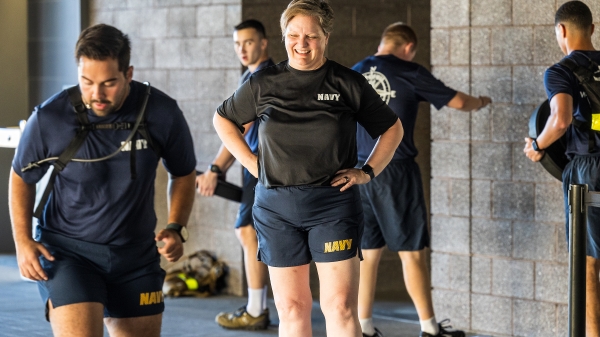
A decorated life: Navy ROTC professor demonstrates leadership excellence
Katrina Hill has received just about every type of military and academic accolade there is and has demonstrated leadership capabilities throughout her time in the service.A Harvard and MIT Fellow. A…
